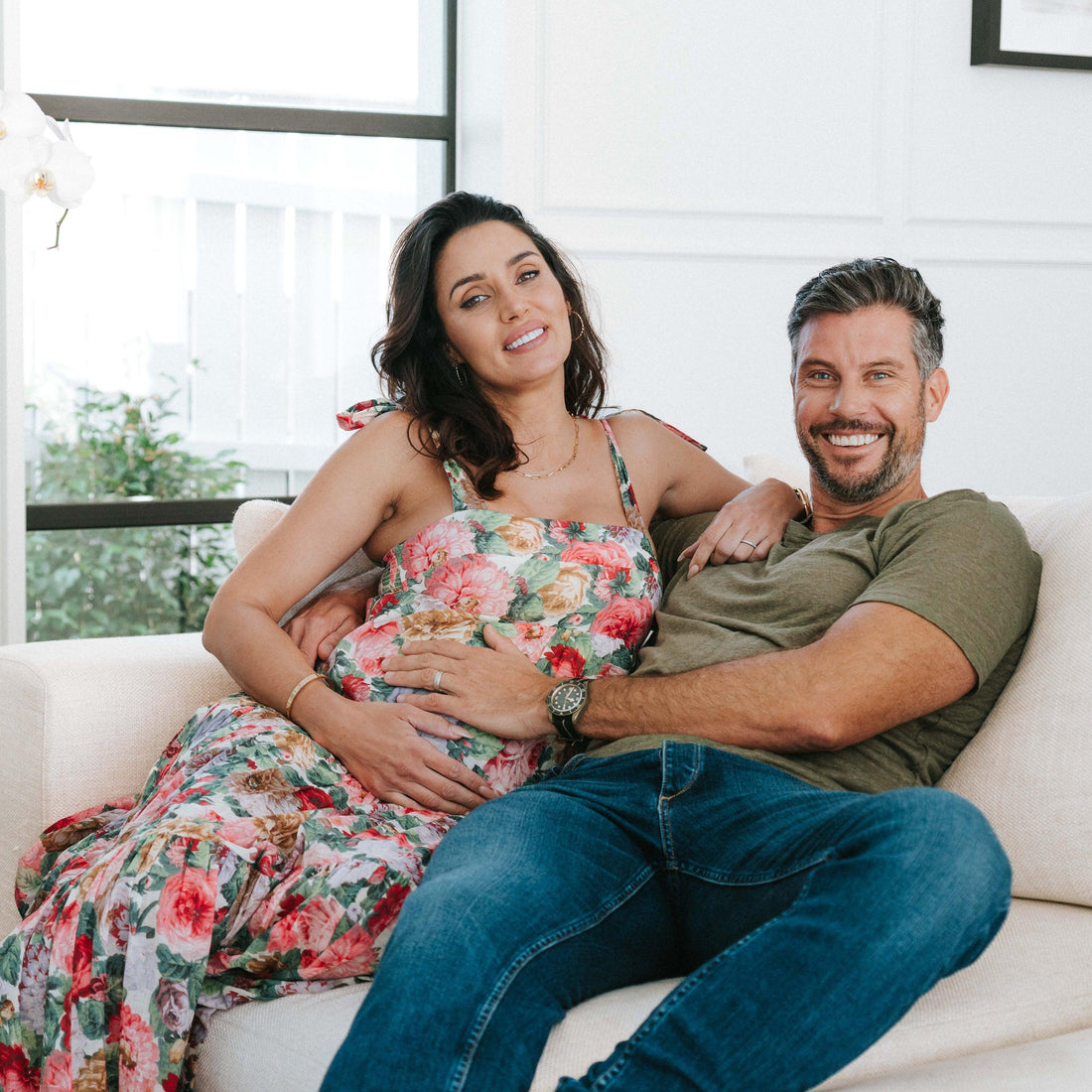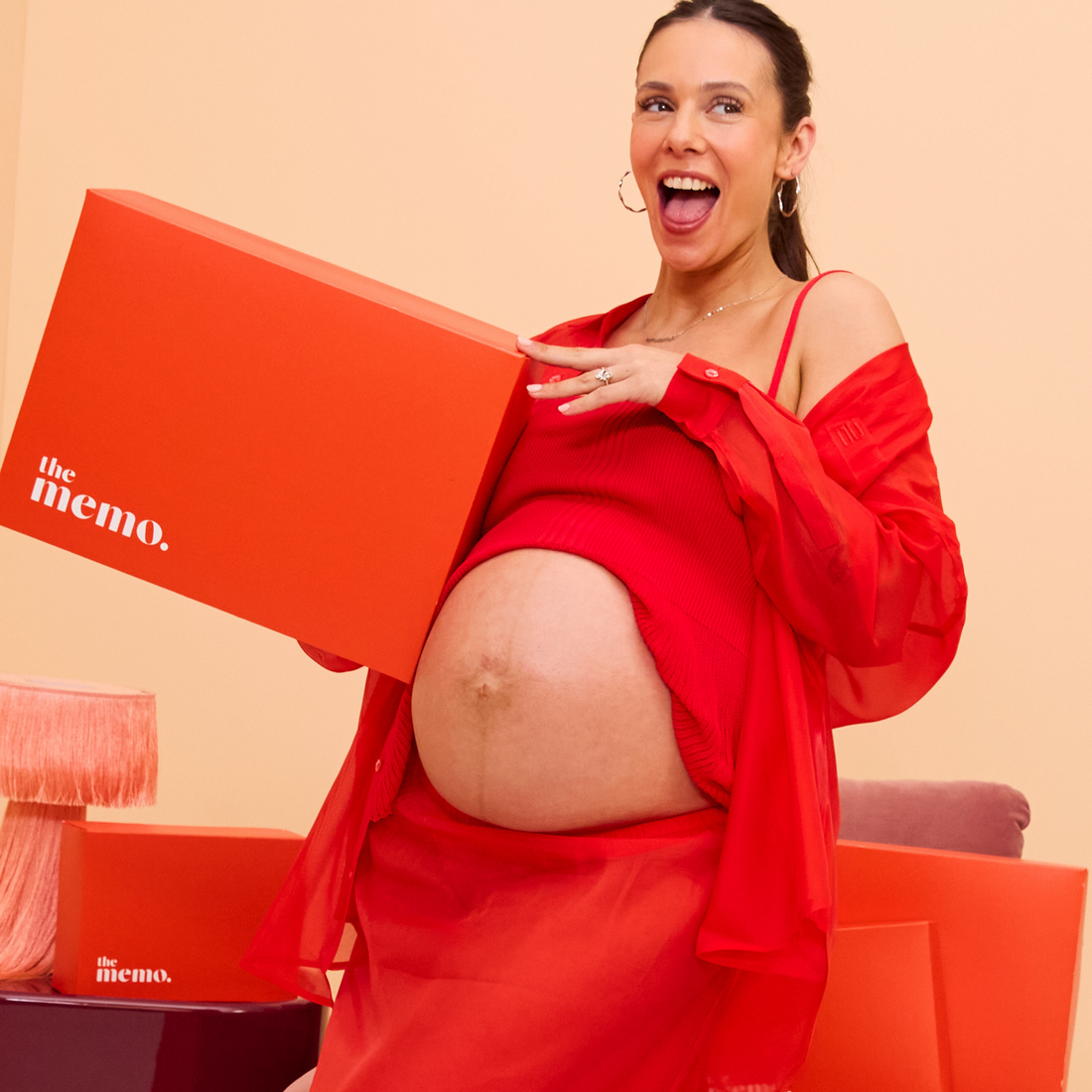Good vibes and excellent advice from postpartum doula Naomi Chrisoulakis.
There’s a saying postpartum doula Naomi Chrisoulakis is a firm believer in: “when a baby is born, so too is a mother.” So often the baby — it’s health, it’s habits, it’s needs — are the soul focus of a family with a newborn. Little energy, care or comfort is left for the mother. But it is she who is going through one of the most momentous events of their own lives: physically, mentally and emotionally. PANDA reports perinatal anxiety or depression affecting 100,000 families in Australia every year, and postnatal depression is experienced by more than one in seven new mums. A baby needs love and support, but so too does a mother. This is the idea behind the concept of the fourth trimester: in the 12-weeks after birth, mother and baby go through great change adjusting to life outside the womb, special care is needed to make this a period in which both thrive, rather than just survive. Postpartum doulas, like Naomi, provide the extra support to help make that possible.
As a postpartum doula Naomi specialises in support — “I know how to listen, help you tap into your intuition, and shut out the “shoulds” that are thrown at new mothers — and nourishment. As Cocoon Naomi, she cooks dishes specially designed for new mums using top quality ingredients — bone broths, lactation cookies, sauerkraut and a delicious calming hot cacao — and delivers them all over Sydney’s inner west. She is also the host of one of our favourite podcasts Tales From the Fourth Trimester. Naomi herself experienced two very different pregnancies and births. This interview took place while she was pregnant with her second child and, taking her own golden advice, and cocooning to give herself a restful and supportive pregnancy and postpartum period.
Give it to us straight, what is a postpartum doula?
A postpartum doula is someone who supports families in the wake of a new baby. Whether you’re a first time mother or a fourth, I’m there to focus on your needs. I help out in a couple of different ways: I deliver food that’s been specially tailored to the needs of new mamas around Sydney, and I offer in-home visits to mothers who need non-judgemental support. The food is delicious and helps with healing, hormone regulation and breastfeeding. The visits look different for everyone, but I might send you to bed while I babywear your little one and take care of the laundry, or perhaps I'll give you a massage and we'll troubleshoot any issues you're having. I help the house run a little more smoothly, your mind ease a little and your body feel a little better.
Who should engage a postpartum doula? It feels like the answer should be “everyone”, but is there any set of circumstances for which you really recommend it?
“Literally everyone, but a postpartum doula will be particularly useful for first time parents, parents of multiples, people who have recently moved cities (to help connect them to local services and networks), expats, people who don't have family in town or can't rely on family for practical and emotional support. If you have medical conditions or have had a tricky birth, they're useful. If you have more than one child, they're useful. If you want to eat well, rest more and ease into parenthood... you need a postpartum doula.
When should mums-to-be engage a postpartum doula?
“Ideally, you'd be chatting with your doula from the middle of your pregnancy — you really want to build a relationship with this person who you're going to become quite intimate with, and get their help with postpartum planning.”
What attracted you to becoming a postpartum doula?
“I first read about postpartum doulas when my daughter was a few months old. I'd just been through a rough birth and postpartum and I felt like I'd been ripped off because I'd never heard of the concept of the fourth trimester — really resting, eating well and easing in to motherhood — and the people who can help make that happen. I'd had some key people show me great care and kindness in the early days, so I knew what a difference it could make, I just didn't have anyone dedicated to my needs, it was all about the baby. I realised how hugely important this work is, and I wanted to be a part of changing the conversation around new motherhood, from one where we're just expected to survive it to the idea that we can actually thrive.”
In other cultures, there is this custom of really supporting and caring for a new mum, why do you think that is not as much of a focus in Western cultures?
“Capitalism. The patriarchy. Ha! This is a HUGE and complex issue but essentially we're living in a highly individualistic society where busy-ness and achievement are valued over caregiving and community. We often don't live near family, we don't know our neighbours, we are having babies later after not being around them as much as previous generations and we've all just forgotten how to take care of new mothers.”
There’s so much emphasis on pregnancy, and when you’re in it, it’s hard to think about what comes after. Is birthing a mental block?
“Absolutely! Birth, understandably, is a big deal. Our culture is all about 'as long as you have a healthy baby...' with so little focus on what happens to a woman when she goes through that huge transformative event. It's really hard to imagine a new identity, role and lifestyle, particularly if you haven't been exposed much to other mums, except for short visits (or if you have some really honest friends). But only thinking about birth and not postpartum (and beyond) is like only planning for a wedding and not thinking about the marriage.”
Why is it so shady? You really need to look for supportive information you might want for postpartum. And what do you recommend for helping change this in Australia?
“I think it's because, sadly, there's this cultural norm that we should all just be getting on with it, that we should be grateful for every spew and wakeful night and people present their best selves on instagram, in mother's groups and to friends — because we're only human. There's much more honesty happening around the fact that motherhood isn't black and white — you're not either depressed and day drinking or #blessed and looking perfect... It's huge and complex and brutal and beautiful. The more we talk honestly about those experiences — and that's exactly the reason I created Tales from the Fourth Trimester — the more things will change.”
What do most new mums do when you visit?
“Sleep! That's honestly the number one thing I can do for new mums: give them the space, time and permission to rest. That often happens after a cup of tea and a catch up, a shoulder rub and a long hot shower. I will try and get stuff done around the house while that happens — take care of dinner, the laundry, tidy up, etc. Sometimes I'm just settling the baby!”
How can new mums give themselves some self care?
“A 20-minute walk around the neighbourhood. A cup of tea in the sunshine with your feet in the grass. A short meditation. Asking for, and accepting a meal from a friend. Sleep. Surrender. And letting go of expectations.”
You give great advice, so I want to know what are some of your go-to mantras for new mums?
“‘Surrender.’ ‘Ask for help.’ ‘It feels hard because it is hard.’ ‘It's a season.’ ‘This too shall pass.’”
And advice for friends and family of a new mum?
“Do not turn up empty handed — come with a meal for later. In fact, before you turn up, ask if she needs anything from the shops. Don't leave washing up. Offer specific help (can I put on a load of laundry? Does the dog need a walk? Do the bins need putting out?). Offer to hold the baby while she has a shower or a sleep. Ask her how she's feeling. Don't offer advice unless she asks for it.”
What’s the first thing you should eat after giving birth?
“If I was queen of the world, every woman would be drinking a hot cup of bone broth!”
Knowing ALL that you know now, with your second pregnancy, how are you preparing differently? How will your fourth trimester be different?
“While I'm preparing for the birth, I'm probably spending more time thinking about afterwards! I'm rallying the troops — paid professionals and family and friends — to give me hardcore support through the first six to 12 weeks. We've saved for massage, a postpartum doula, acupuncture... anything I feel I might need to help me recover, rest and feel good. I have an IBCLC, therapist and naturopath on speed dial for any issues that might come up. I'm surrendering my expectations and I won't be angsting about sleep like I did the first time around. I'm asking friends to do a meal train for us. I hope I'll be communicating better with my husband and putting up more boundaries with the people who need them. I really hope this will help me have a much better fourth trimester this time around.”
















